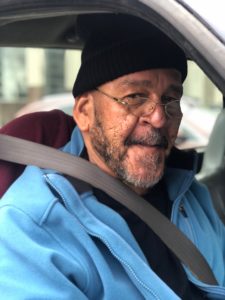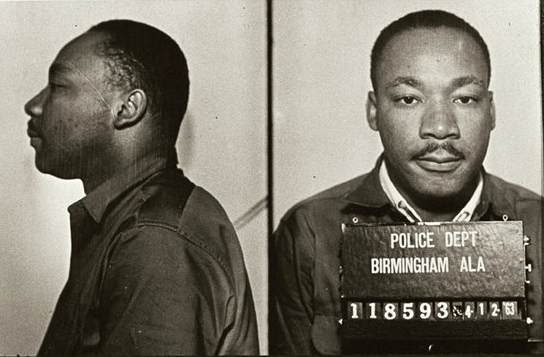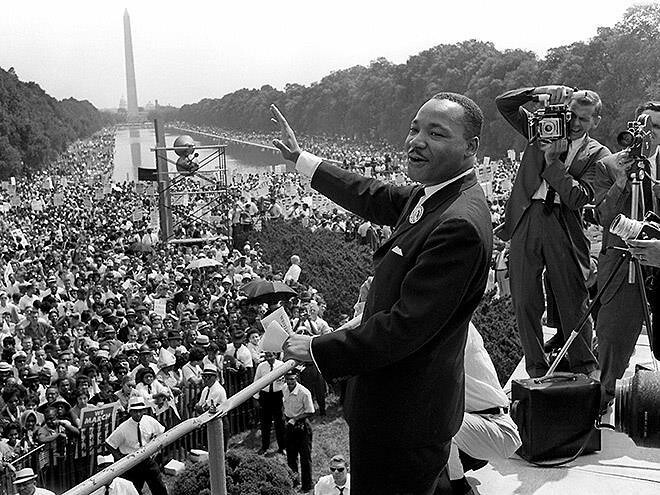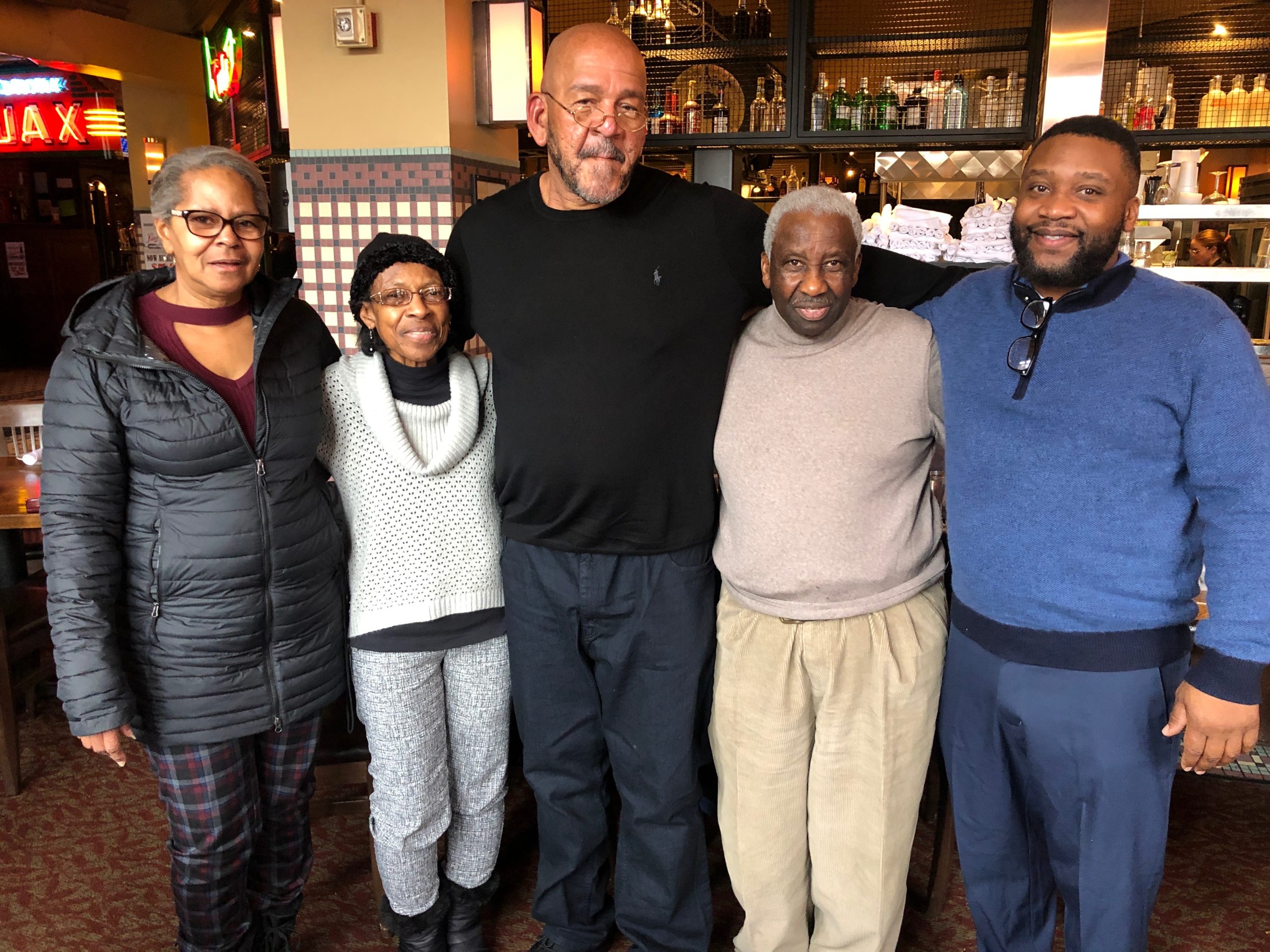Martin Luther King Jr. Gave This Wrongfully Convicted Person Hope Through Decades of Incarceration
01.15.21 By Daniele Selby
Gerry Thomas spent nearly 30 years in prison for a crime he did not commit. And while Mr. Thomas, who was exonerated in Detroit on Jan. 13, 2020, says that he has always tried to keep his heart open and hold love in his heart for everyone, at times he struggled to stay hopeful.

Gerry Thomas moments after his exoneration and release from 29 years in prison. [Suzy Salamy/Innocence Project]
During those moments, Mr. Thomas, an Innocence Project and Western Michigan University Thomas M. Cooley Law School client, turned to what he called his “strength box” — a cassette tape player.
Mr. Thomas would listen to old tapes of Aretha Franklin and gospel singers like Shirley Caesar and Mahalia Jackson.
“That gave me inspiration and power to move forward. I could walk eight miles after listening to them,” he said, recalling his long walks around the prison track.
But in 2017, Mr. Thomas was able to expand his “strength box” when the prison began allowing tablets made by a company called JPay for incarcerated people to use while in prison. And a new world opened up.
Mr. Thomas wanted to add new sounds to his “strength box” and searched for recordings of a figure who had long inspired him: Dr. Martin Luther King, Jr.
“I grew up through those days with Martin Luther King, Jr.,” he said.
Mr. Thomas was just a child when Dr. King gave his famous “I Have a Dream” speech, and only 11 when the iconic civil rights leader was assassinated. But long after Dr. King’s assassination, Mr. Thomas continued to find strength and truth in his words.
“The stuff he talked about is happening still today even though that person is long gone,” he said.
Mr. Thomas said he frequently listened to recordings of Dr. King before bed, even letting himself fall asleep to the sound of his voice.
“What that did was it gave me strength and hope that I was going to make it out of that situation. His messages were strength for me because I’d seen what he had struggled through,” he said, referring to Dr. King’s own experience of being unjustly incarcerated.

Dr. King’s mugshot from the Birmingham, Alabama police station in 1963. Photo from the Birmingham Police Department.
In 1991, Mr. Thomas was wrongfully convicted of the assault and attempted murder of a Detroit woman, who had been attacked in her car by a stranger with a knife in 1987. At knifepoint, her attacker ordered her to drive, forced her to perform oral sex, and ultimately absconded with her car.
Three weeks later, police pulled over her stolen vehicle and arrested the driver and passenger, who told police officers that they had gotten the car from the driver’s brother. The police released both the driver and passenger after the victim did not identify either as her attacker. And, despite finding the car’s registration paperwork in the home that the driver shared with his brother, they did not further investigate the brother as a suspect.
About two years after the attack, the victim believed she had seen her attacker and contacted the police. They later found Mr. Thomas eating lunch at a nearby Burger King, where the victim identified him as her attacker. No other witnesses or physical evidence connected Mr. Thomas to the crime. The police did not reinvestigate the case, but still arrested and charged Mr. Thomas with the attack nine months later.


I am sickened by the injustice done to
Mr Thomas. Racism is a plague upon America and a shame on the white man that hates because of skin color. Ignorance and fear have a stronghold in this country. We are each responsible and will be held accountable if we do nothing to change our world.